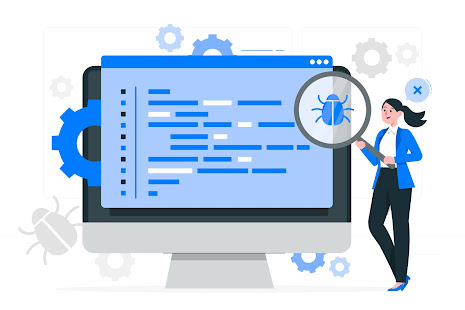Is Selenium Good for the Future?
Selenium Software Testing has revolutionized the way developers and testers approach quality assurance, offering robust solutions for Testing with Selenium across various environments. Selenium has been a dominant tool in the realm of software testing for quite some time, especially in the context of web applications. As we look towards the future, it’s essential to understand why Selenium continues to be relevant and what potential it holds for the coming years.
Introduction
Selenium is an open-source framework used for automating web applications. It supports various browsers and operating systems, making it a versatile tool in the software testing industry. With the increasing complexity of web applications, the demand for efficient and reliable testing tools like Selenium has surged.
The Evolution of Selenium
Selenium was initially developed by Jason Huggins in 2004 as an internal tool at ThoughtWorks. Over the years, it has evolved significantly, incorporating various functionalities that cater to modern web applications' testing needs. The framework now supports multiple programming languages, including Java, C#, and Python, providing flexibility to developers and testers.
Key Advantages of Selenium
1. Open-Source and Free:
Selenium is open-source, meaning it is free to use. This has contributed to its widespread adoption among individual developers and large organizations.
2. Multi-Browser Support:
Selenium supports a variety of web browsers such as Chrome, Firefox, Internet Explorer, and Safari. This cross-browser compatibility ensures that applications function correctly across different platforms.
3. Cross-Platform Compatibility:
Testing with Selenium is not limited to a specific operating system. It supports Windows, macOS, and Linux, allowing testers to execute tests across different environments seamlessly.
4. Integration with Other Tools:
Selenium can be integrated with other tools and frameworks like TestNG, JUnit, and Maven for managing test cases and generating reports. This integration capability enhances the efficiency of the testing process.
5. Community Support:
Selenium has a robust and active community that contributes to its development and provides support to users. This community-driven approach ensures that Selenium stays updated with the latest industry trends and technologies.
Future Trends in Selenium Automation Testing
1. AI and Machine Learning Integration:
The future of Selenium automation testing is likely to see the integration of AI and machine learning. These technologies can enhance test automation by predicting potential failure points and optimizing test cases, making the testing process more intelligent and efficient.
2. Increased Adoption of Selenium WebDriver:
Selenium WebDriver has become the standard tool for browser automation. Its ability to control browsers at a granular level makes it a powerful tool for testers. The trend of adopting WebDriver is expected to continue, with more enhancements and features being added to improve its functionality.
3. Shift Towards Continuous Testing:
With the rise of DevOps and continuous integration/continuous deployment (CI/CD) practices, there is a growing emphasis on continuous testing. Selenium, with its ability to integrate with CI/CD tools like Jenkins, is well-positioned to support this shift. This trend indicates a future where Selenium plays a crucial role in ensuring rapid and reliable software releases.
4. Enhanced Reporting and Analytics:
Future developments in Selenium are expected to focus on improving reporting and analytics capabilities. Detailed and actionable insights from test results will help teams to identify issues faster and improve the overall quality of the software.
5. Mobile Testing:
As mobile application usage continues to grow, the need for effective mobile testing solutions is increasing. Selenium has made strides in this area with Selenium Appium for mobile app automation. The future will likely see further enhancements in Selenium’s mobile testing capabilities, making it a comprehensive tool for both web and mobile testing.
Conclusion
Selenium's robust features, cross-platform support, and active community make it a valuable tool for software testing now and in the future. The ongoing advancements and integration with emerging technologies like AI and machine learning ensure that Selenium remains relevant in the rapidly evolving tech landscape. As organizations continue to adopt agile and DevOps practices, Selenium’s role in automating and streamlining the testing process will become even more critical.
By embracing these future trends and leveraging the strengths of Selenium, testers and developers can ensure high-quality software releases that meet the demands of modern web and mobile applications.




Comments
Post a Comment